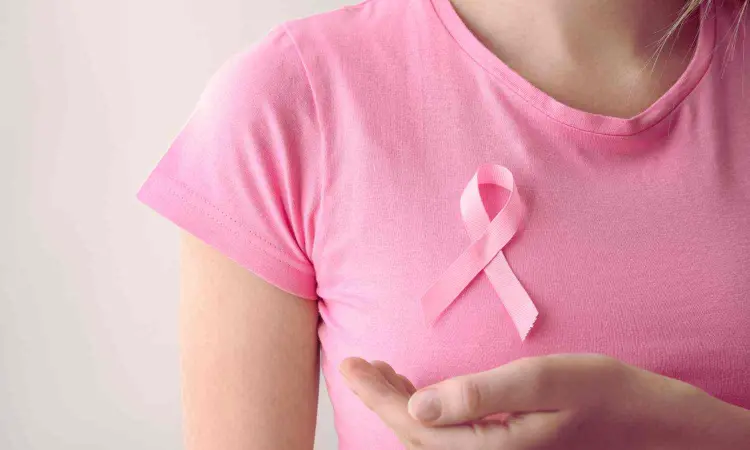- Home
- Medical news & Guidelines
- Anesthesiology
- Cardiology and CTVS
- Critical Care
- Dentistry
- Dermatology
- Diabetes and Endocrinology
- ENT
- Gastroenterology
- Medicine
- Nephrology
- Neurology
- Obstretics-Gynaecology
- Oncology
- Ophthalmology
- Orthopaedics
- Pediatrics-Neonatology
- Psychiatry
- Pulmonology
- Radiology
- Surgery
- Urology
- Laboratory Medicine
- Diet
- Nursing
- Paramedical
- Physiotherapy
- Health news
- Fact Check
- Bone Health Fact Check
- Brain Health Fact Check
- Cancer Related Fact Check
- Child Care Fact Check
- Dental and oral health fact check
- Diabetes and metabolic health fact check
- Diet and Nutrition Fact Check
- Eye and ENT Care Fact Check
- Fitness fact check
- Gut health fact check
- Heart health fact check
- Kidney health fact check
- Medical education fact check
- Men's health fact check
- Respiratory fact check
- Skin and hair care fact check
- Vaccine and Immunization fact check
- Women's health fact check
- AYUSH
- State News
- Andaman and Nicobar Islands
- Andhra Pradesh
- Arunachal Pradesh
- Assam
- Bihar
- Chandigarh
- Chattisgarh
- Dadra and Nagar Haveli
- Daman and Diu
- Delhi
- Goa
- Gujarat
- Haryana
- Himachal Pradesh
- Jammu & Kashmir
- Jharkhand
- Karnataka
- Kerala
- Ladakh
- Lakshadweep
- Madhya Pradesh
- Maharashtra
- Manipur
- Meghalaya
- Mizoram
- Nagaland
- Odisha
- Puducherry
- Punjab
- Rajasthan
- Sikkim
- Tamil Nadu
- Telangana
- Tripura
- Uttar Pradesh
- Uttrakhand
- West Bengal
- Medical Education
- Industry
Breast cancer survivors find relief for debilitating menopause symptom, suggests study

About 50% of menopausal women experience genitourinary syndrome of menopause (GSM) that involves changes to the genitals, including the vagina, urethra and bladder. When estrogen levels drop during menopause, it can cause the GSM symptoms of vaginal dryness, itching, burning, frequent urinary tract infections and pain during sex. Replenishing the hormone through vaginal estrogen is an effective GSM treatment. But many breast cancer survivors either can't or don't want to use estrogen.
More than 4 million people in the U.S. are breast cancer survivors. GSM affects up to 70% of these survivors. Medications that stop the body from producing estrogen can prevent or stop the spread of breast cancer. However, these antiestrogen therapies, called aromatase inhibitors, also can exacerbate GSM symptoms.
"Our data shows that as many as 20% of breast cancer survivors on aromatase inhibitors will stop taking their medication prematurely because they cause severe GSM symptoms. This early discontinuation of their breast cancer therapy can lead to worse outcomes in breast cancer survivorship. So, clearly, nonhormonal treatment options for GSM are needed," says Anita Chen, M.D., a gynecologist at Mayo Clinic in Florida. Dr. Chen is the lead author of a study published in Obstetrics & Gynecology.
This need drove Dr. Chen to search for another option. Her team conducted a phase 1 clinical trial with 20 breast cancer survivors with GSM to test the efficacy of platelet-rich plasma (PRP), the part of the blood that holds healing properties, to see if it could help. Blood was drawn from each participant and then spun in a centrifuge to obtain platelets and plasma that have self-healing and regenerative effects. PRP was then injected diffusely once into the opening of the vagina and the vaginal canal in each participant.
"After six months, the breast cancer patients' GSM symptoms had significantly improved, including sexual function, urinary symptoms and overall quality of life, even amongst those taking estrogen blockers," says Emanuel Trabuco, M.D., a Mayo Clinic researcher and co-author of the study.
While vasomotor symptoms of menopause, such as hot flashes and night sweats, can improve over time, GSM does not improve without treatment and worsens over time.
"All of our participants completed the injection protocol and rigorous follow-up, which suggests that this population desires treatment for a bothersome condition, one that is likely underreported, underestimated and undertreated," says Dr. Chen. "Most importantly, none of the participants stopped their breast cancer treatment or experienced cancer recurrence during the study."
PRP has been used for years in orthopedics and dermatology, and gynecologists have started looking into it to treat stress urinary incontinence, reproductive medicine and GSM.
The next step in this research includes pursuing a phase 2 randomized controlled clinical trial to compare PRP injection with a placebo to treat GSM in breast cancer survivors and further evaluate its efficacy.
Reference:
Chen, Anita H. MD; Trabuco, Emanuel C. MD; Chumsri, Saranya MD; Thielen, Jacqueline M. MD; Cornella, Jeffrey L. MD; Shapiro, Shane A. MD; Heckman, Michael G. MS; Dukes, Reagan E. MHA; Arthurs, Jennifer R. APRN; Blumenfeld, Sophia G. BS; Yi, Johnny MD. Platelet-Rich Plasma for Genitourinary Syndrome of Menopause in Breast Cancer Survivors. Obstetrics & Gynecology 146(5):p 728-736, November 2025. | DOI: 10.1097/AOG.0000000000006081
Dr Kamal Kant Kohli-MBBS, DTCD- a chest specialist with more than 30 years of practice and a flair for writing clinical articles, Dr Kamal Kant Kohli joined Medical Dialogues as a Chief Editor of Medical News. Besides writing articles, as an editor, he proofreads and verifies all the medical content published on Medical Dialogues including those coming from journals, studies,medical conferences,guidelines etc. Email: drkohli@medicaldialogues.in. Contact no. 011-43720751


